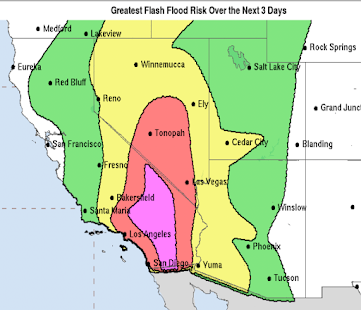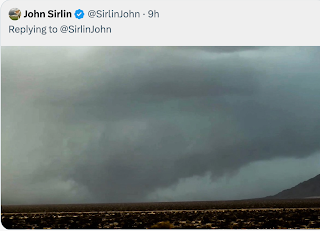Another Expensive, And Premature, Global Warming Boondoggle
From USA Today,
Do journalists not know how to read graphs? There are four measures of atmospheric temperatures. Here they are, each updated to the latest information (January, 2011).
It would be refreshing (and basic journalism) for reporters to stop reprinting claims from environmental groups and do some independent investigation.
The quotes from "experts" in the article are telling,
As seems to be the norm for these articles, none of the people quoted about modifying the atmosphere are atmospheric scientists.
That stated, it is my opinion geoengineering is a terrible idea at this time. Why? There is no indication it is needed (temperatures are now cooling and they have been essentially flat for 15 years as you can see from the graphs), the world economy can't afford it, and the "risks" of it backfiring are substantial. Once, for example, iron is dumped into the ocean it cannot be removed. What if it causes too much cooling? What if it kills (already depleted) fish populations?
As previously documented, there is a growing number of atmospheric scientists who are concerned that the world may be in for significant cooling in the next five to twenty years. If so, geoengineering would increase the amount of cooling. As this blog has demonstrated, humanity does much better with warmer temperatures than it does with colder temperatures.
Scientists call it "geoengineering," but in plain speak, it means things like this: blasting tons of sulfate particles into the sky to reflect sunlight away from Earth; filling the ocean with iron filings to grow plankton that will suck up carbon; even dimming sunlight with space shades.
Each brings its own set of risks, but in a world fretting about the consequences of global warming, are these ideas whose time has come?
With 2010 tying as the world's warmest year on record and efforts to slow greenhouse gas emissions looking stymied, calls are rising for research into engineering our way out of global warming — everything from launching solar shade spacecraft to genetically engineering green deserts. An international consortium of 12 universities and research institutes on Tuesday, for example, announced plans to pioneer large-scale "ocean fertilization" experiments aimed at using the sea to pull more greenhouse gases out of the sky.
Do journalists not know how to read graphs? There are four measures of atmospheric temperatures. Here they are, each updated to the latest information (January, 2011).
 |
| British Hadley Center data. |
 |
| University of Alabama data |
 |
| RSS data |
 |
NASA data As all four clearly show, 2010 was NOT the hottest year. And, all four show temperatures are cooling at the present time. |
The quotes from "experts" in the article are telling,
- "We are moving into a different kind of world," says environmental economist Scott Barrett of Columbia University.
- "That's where geoengineering comes in," says international relations expert David Victor of the University of California - San Diego
- "Geoengineering is no longer a taboo topic at scientific meetings. They are looking at it as one more policy prescription," says Eli Kintisch, Science magazine reporter. (his biography shows no education in atmospheric science).
As seems to be the norm for these articles, none of the people quoted about modifying the atmosphere are atmospheric scientists.
That stated, it is my opinion geoengineering is a terrible idea at this time. Why? There is no indication it is needed (temperatures are now cooling and they have been essentially flat for 15 years as you can see from the graphs), the world economy can't afford it, and the "risks" of it backfiring are substantial. Once, for example, iron is dumped into the ocean it cannot be removed. What if it causes too much cooling? What if it kills (already depleted) fish populations?




Comments
Post a Comment